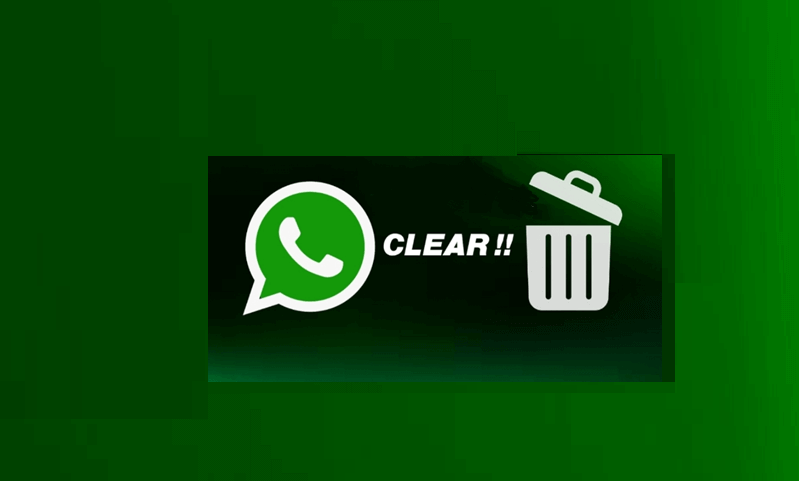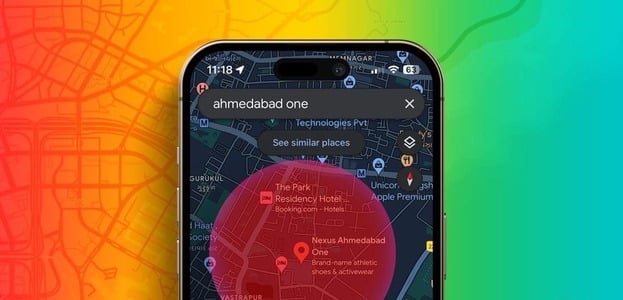It's a fact that a very slow loading website can lead to poor rankings. Yes, that's right. You may not have the patience to deal with slow loading web pages, and that's why you're here! When you try to access any web page in your browser, you may sometimes be blocked from accessing it. This can happen when you're denied access to those web pages (due to permission rights) or when you try to access blank web pages. If you want to know how to fix the 403 Forbidden error on Google Chrome, you've come to the right place! We offer a perfect guide that will help you understand how to fix the 403 Forbidden error on Google Chrome.
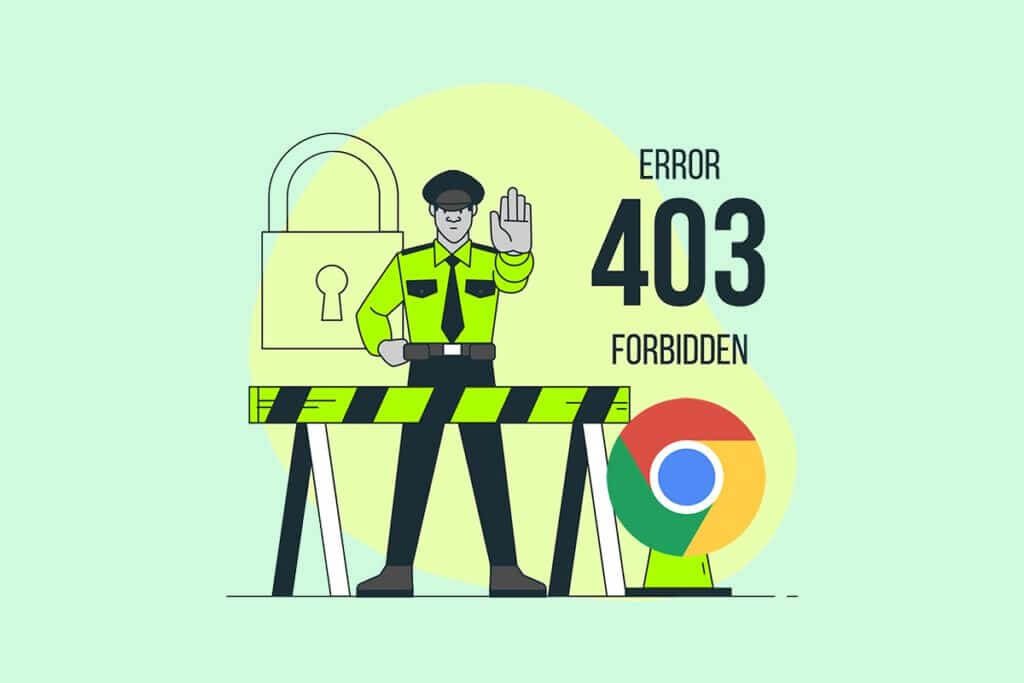
How to Fix Error 403 on Google Chrome
The 403 Forbidden Error is an HTTP status code that indicates that you are denied access to a website. Website owners set appropriate permissions for web pages, and if you don't have them, you may encounter the same rights. On the other hand, if the website owner hasn't set the permissions correctly, you'll encounter the same error. You may encounter the error in some other formats, such as
- Http403 Forbidden
- HTTP Error 403 – Forbidden
And also
- HTTP Error 403.14 – Forbidden
- Error 403
- Forbidden: You do not have permission to access [directory] on this server.
- Error 403 – Forbidden
In most cases, there's not much you can do on your end to resolve the issue. However, if this is a temporary glitch, here are some things to help you figure out how to fix the 403 error.
What causes the 403 Forbidden Error?
If you have any misconfigured access rights on the client side, you can likely resolve the issue yourself. Incorrect read, write, and execute permissions for the file or folder, resulting from the folder/file properties, could be the cause. Aside from these factors, there are a few other sources of the 403 Forbidden error. They are listed below.
- Special content requires appropriate permissions.
- User restricted content.
- Access geo-restricted web pages.
- Presence of malware/viruses.
- Invalid or banned IP address.
- Typo in URL.
- Internet connection errors.
- Corrupted cache, incompatible extensions or add-ons in the browser.
Now, move on to the next section to learn how to fix the 403 Forbidden error on Google Chrome.
Basic troubleshooting steps
Follow these basic troubleshooting steps to fix the mentioned error.
- Reload web pages: The basic fix for any common browser-related error is to refresh web pages to resolve any internal glitches. You can refresh web pages in Chrome directly by clicking Reload button Or simply by clicking on Ctrl + R keys On the corresponding web page.

- Verify the URL: Make sure your URL is perfect and free of typos. Check the .html or .com extensions and whether they are trustworthy or not. Note that a regular URL will end with .com, .html, .org, .in, .php, etc., while a directory URL will have a suffix of . "/".
- Try a different device: Check if the issue is with your device or the website. Connect to a different device and try accessing the same web page there. If you encounter the same 403 error on a different device, there may be a problem with the website. On the other hand, if you don't encounter the issue on some other devices, the problem lies with your computer.
- Restart your router: If you're using a Wi-Fi connection instead of Ethernet, there's a small chance that any configuration issues with your router could be causing the issue.
Note: To restart your network connection, please restart your router as shown below.
1. Search for On/Off button On the back of your router. Press One-time button To turn off your router.
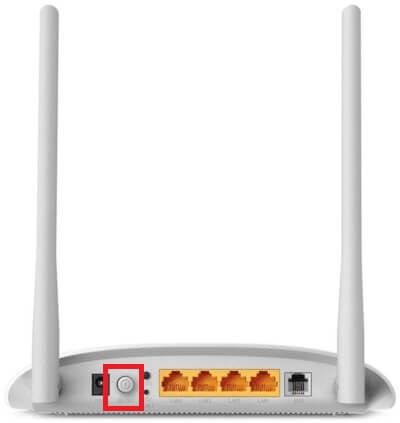
2. Unplug power cable Wait until the power is completely drained from Capacitors. Now, your router is completely drained of power.
3. Wait for Accurate Before restoring power, wait until the network is reconnected.
- Check if you are logged out: If you tried to access the webpage from your browsing history, you may be logged out of the webpage/app. Please check if you're logged in and then make sure you don't encounter the error again.
- Try again later: Patience is important. Restart your computer and try accessing the website after some time. Check if you encounter the issue again.
- If you haven't gotten any relief from the basic troubleshooting methods outlined above, it's time to try advanced troubleshooting options to learn how to fix 403 errors. Below are some simple and effective methods, arranged chronologically, that will help you understand how to fix the 403 error. Follow them in the same order for optimal results.
Method 1: Synchronize date and time
When you try to access any webpage in Google Chrome, the server ensures that your computer's date and time are aligned with the date and time of the server located in that specific geographic location. This feature may seem unnoticeable to many users, but it is primarily intended to prevent data theft or misuse. You may also receive a 403 error in Google when you have incorrect date and time settings on your Windows 10 computer. Ensure that the date and time on your computer are correct by following the steps below.
1. Write Date and time settings in Windows search bar
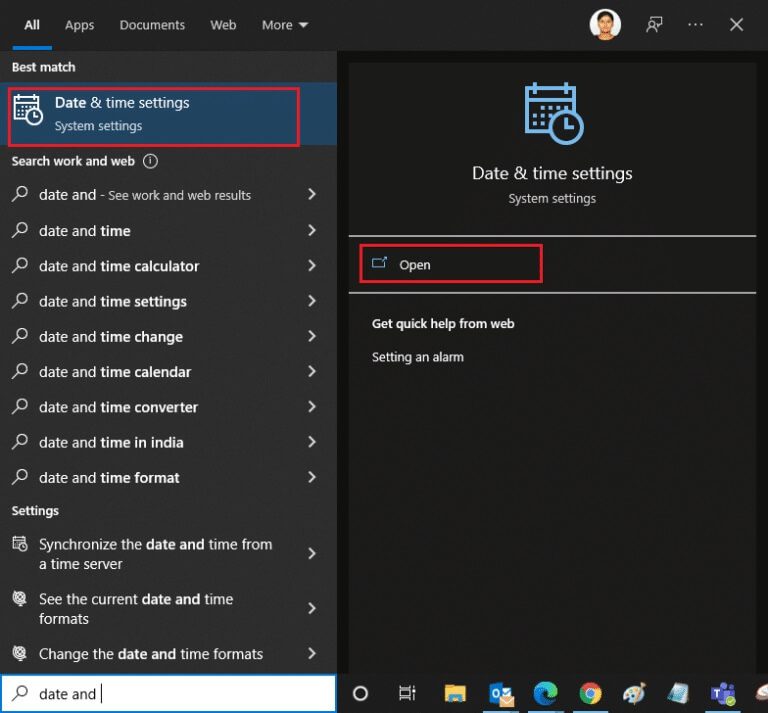
2. Check The almanac Select it from the drop-down list and check if it is your current geographic region.
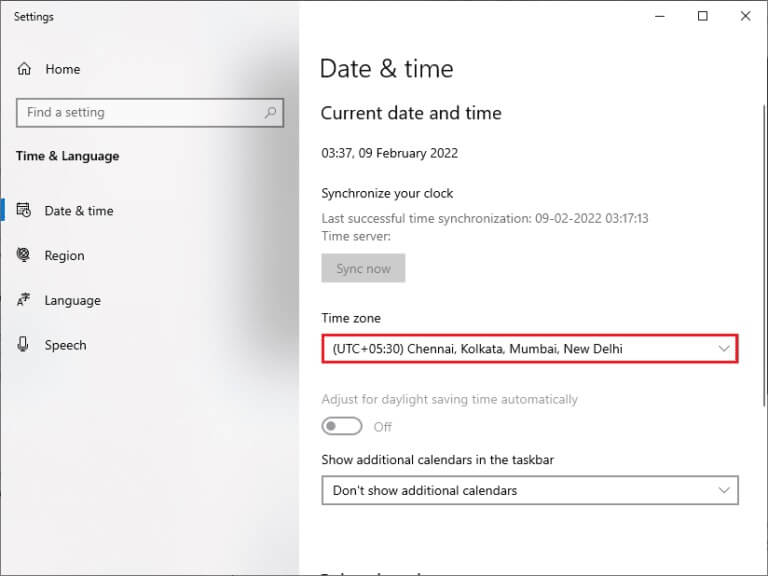
3. Next, make sure it matches. time and date with World time and date.
If there is any discrepancy, fix it and check if you have solved the problem.
Method 2: Use private browsing
If you're facing the Forbidden 403 error for security and privacy reasons, you can try incognito mode. Your search history and recent pages won't be monitored or recorded, thus hiding all corrupted cookies and caches responsible for the 403 error on Google. Follow the steps below to open the webpage in private mode.
1. Open Google Chrome.
2. Click on three-dot icon in the upper right corner.

3. Select an option New Incognito Window Or press and hold Ctrl + Shift + N keys In Chrome to play it.
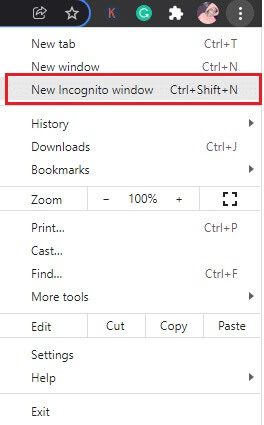
Method 3: Clear cache and cookies
Your browser's cache and cookies store your browsing data. If any suspicious data is stored locally, or if the data is corrupted or incompatible, you may encounter a 403 error on Google. Clear your browsing data, cache, and collected cookies to fix the issue.
1. Open Chrome browser.
Note: You can navigate directly to the page to delete browsing history in Chrome by typing chrome://settings/clearBrowserData in the search bar.
2. Click on three-dot icon in the upper right corner.

3. Click on More tools As shown below.
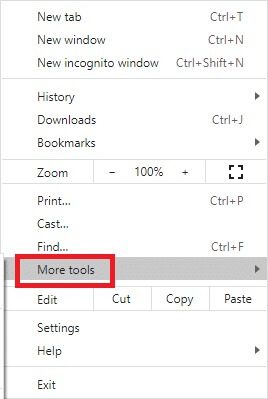
4. Click Clear browsing data…
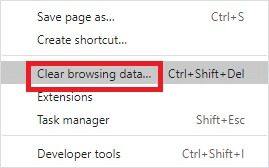
5. Here, select Time range For the action to be completed. For example, if you want to Delete data completely , select All time and click on Wipe data.
Note: Make sure to check the Cookies and other site data box and the Cached images and files box before clearing data from your browser.
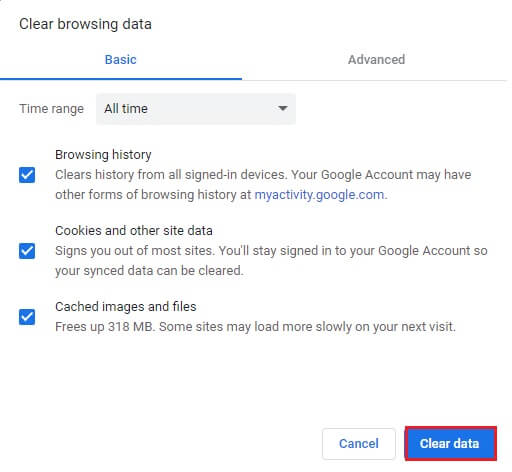
Now, check if you have fixed the issue.
Method 4: Disable extensions (if applicable)
You can enjoy a wide range of third-party extensions and add-ons in Chrome by adding them to your browser. If you download them from a trusted source, you'll have no problem working with them. However, if any extensions or add-ons are interfering with Chrome's functionality, you should temporarily disable them all to fix errors. Here's how.
1. Turn on Google Chrome browser.
Note: To skip the steps to get to the extensions page, type chrome://extensions/ in the search bar and press Enter.
2. Click on three-dot icon in the upper right corner.

3. Select an option More tools.
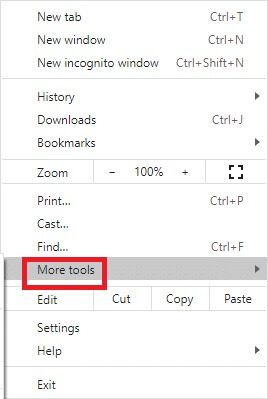
4. Click Extensions.
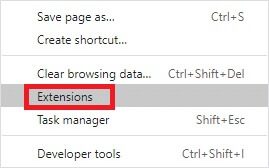
5. Finally, turn off the extension you want to disable. If you don't encounter any errors after disabling a particular extension, click the option removal To remove it from your browser.
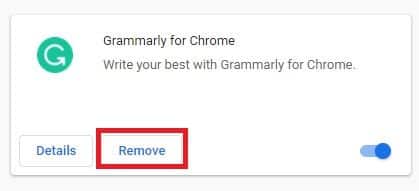
Method 5: Run a malware scan
The Forbidden 403 error may be caused by malware attacks on your computer. Malware that has infiltrated your computer can infect and corrupt essential program files, leading to the error. To avoid conflicts, use Antivirus software Which can monitor your computer or scan your entire computer as shown below.
1. Press Windows + R keys Together to open Windows Settings.
2. Click Update and security
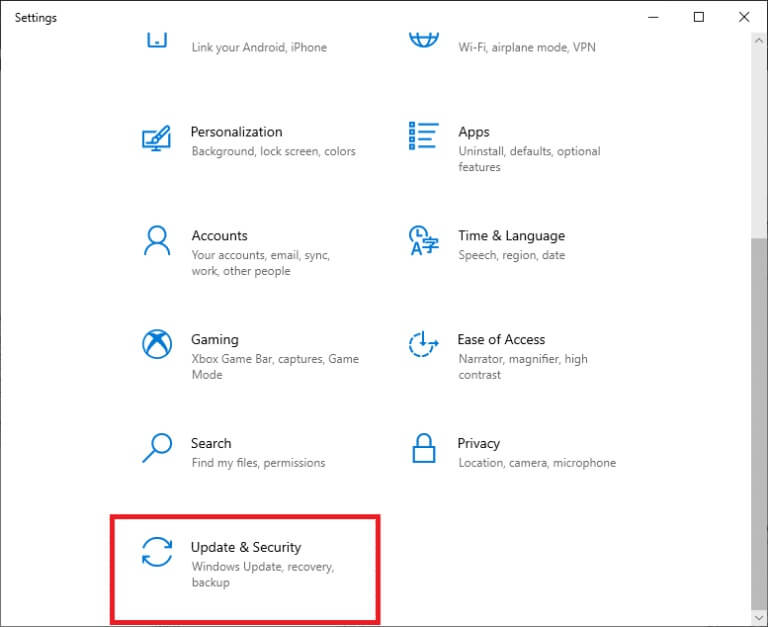
3. Click Windows Security and select Virus and threat protection.
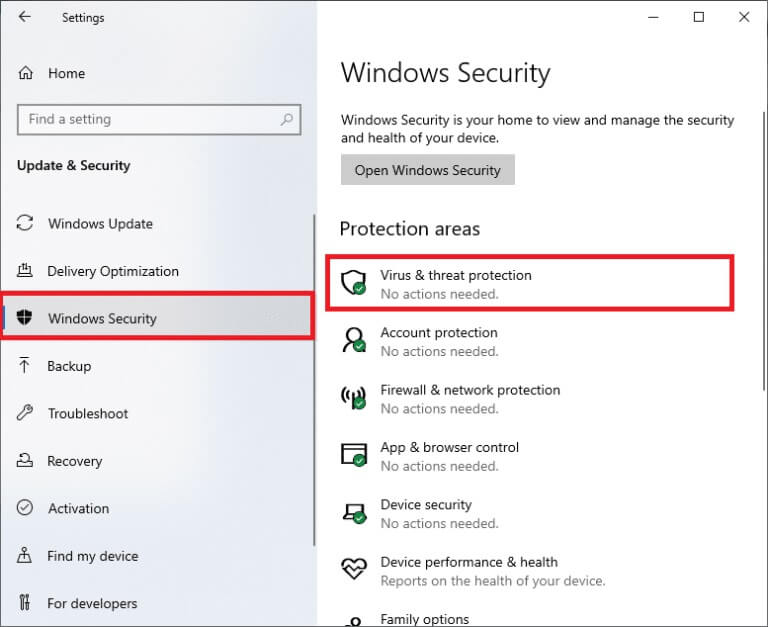
4. Click Scan Options.
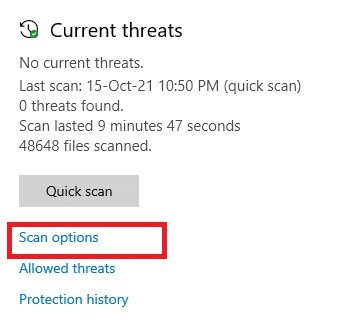
5. Choose an option scanning According to your preferences and click on Scan Now.
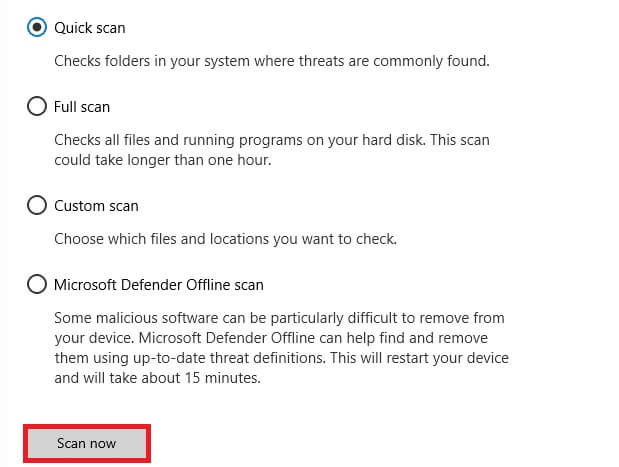
6A. All threats will be listed here. Click Start the process within Current threats.
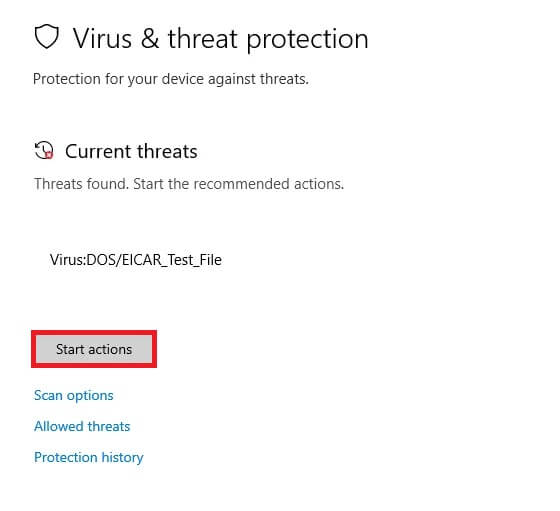
6b. If you do not have any threats in your system, the system will display “There are no current threats.”
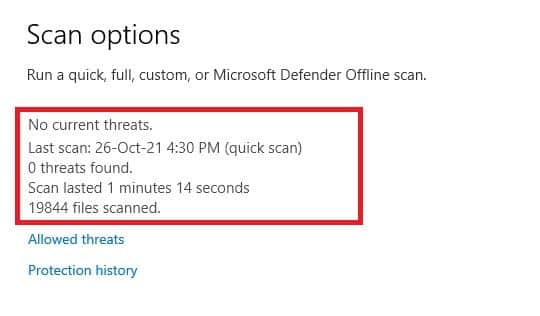
will Windows Defender Remove all viruses and malware once the scanning process is complete.
Method 6: Update Windows
Microsoft is constantly improving all its versions of Windows to ensure a bug-free browser. You can fix bugs and errors on your Windows 10 computer by updating it. Follow the steps below to update your Windows computer.
1. Press Windows key + I At the same time to run Settings.
2. Click on the box Update and security , as shown.
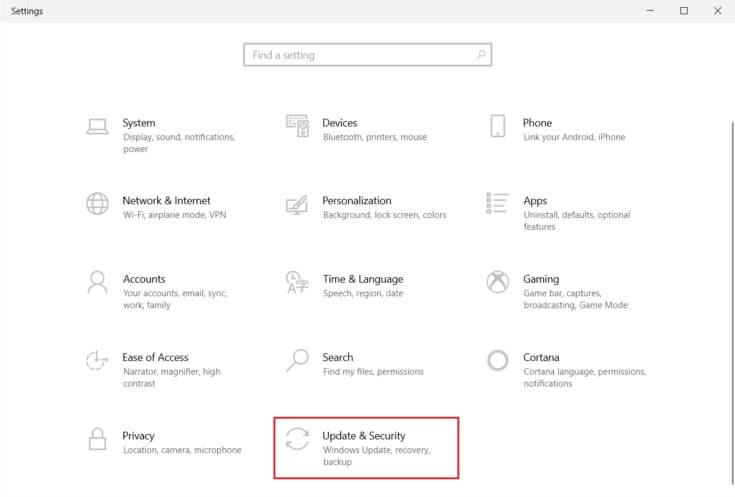
3. in Windows Update tab , Click Check for updates button.
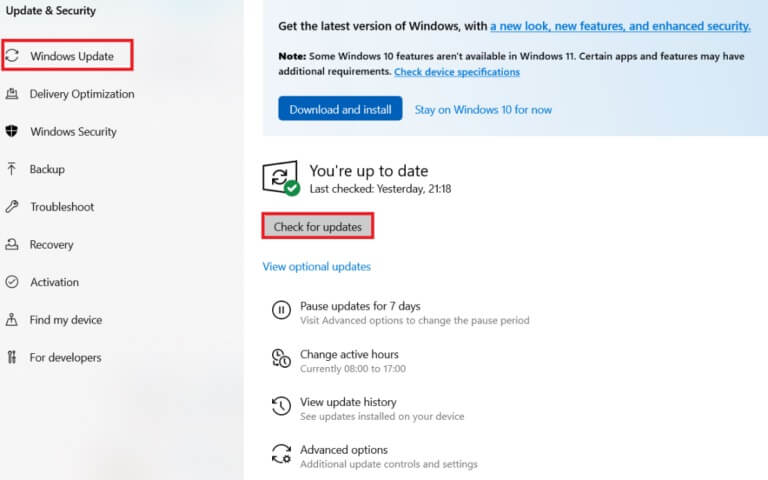
4 a. If available new update , Click INSTALL NOW Follow the instructions to update.
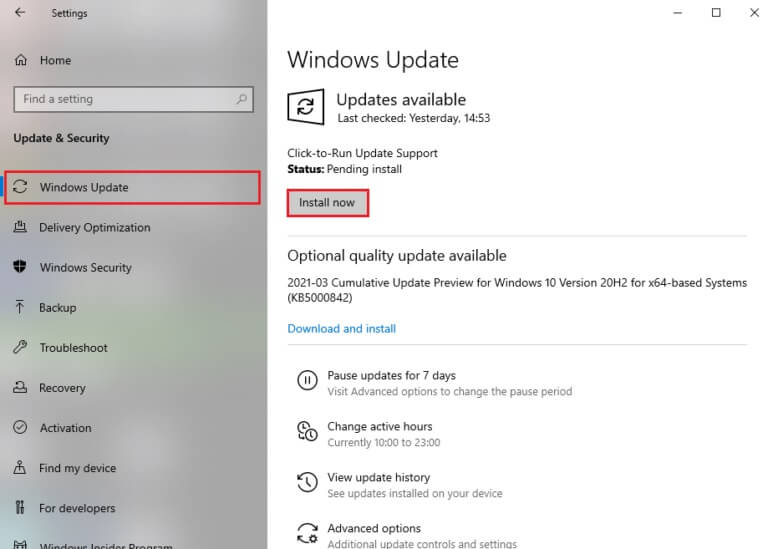
4b. Otherwise, if Windows up to date , you will see an updated message.
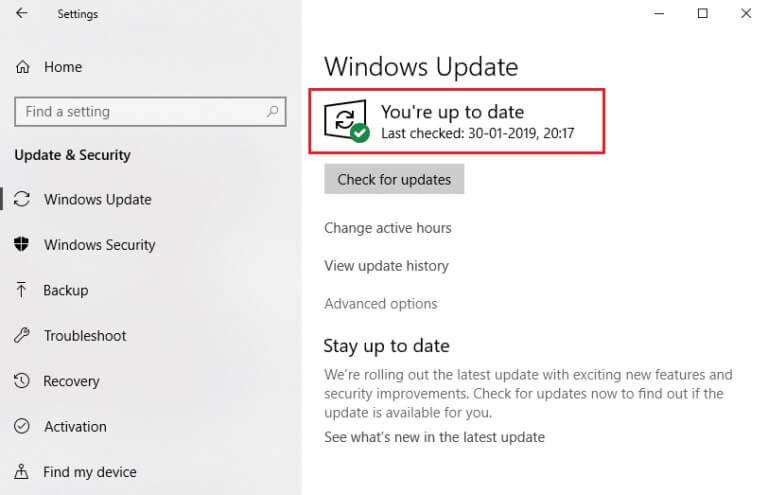
Method 7: Update Chrome
Older browsers may not support up-to-date versions of web pages, resulting in the 403 Forbidden error. To fix errors and issues, update Google Chrome as described below.
1. Turn on Google Chrome browser.
2. Click on three-dot icon To expand the list Settings.
3. Then select Instructions > About Google Chrome As shown below.
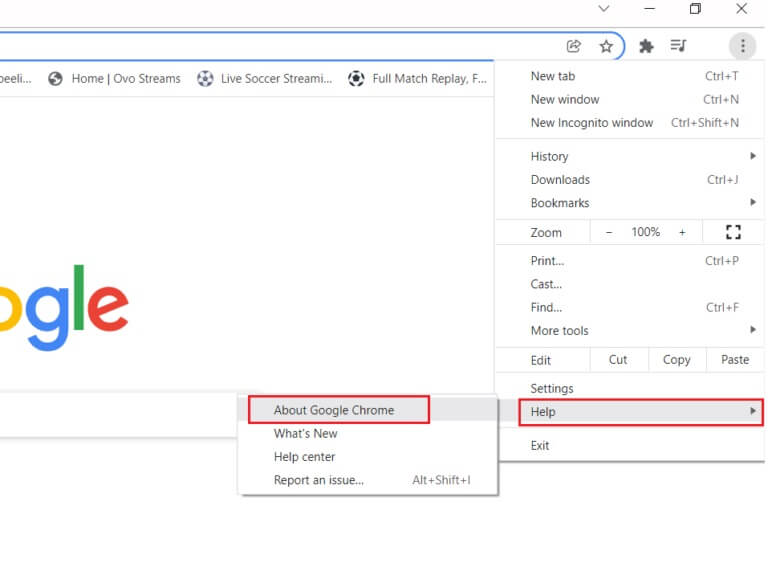
4. Allow Google Chrome Check for updates. The screen will display a message checking for updates, as shown.
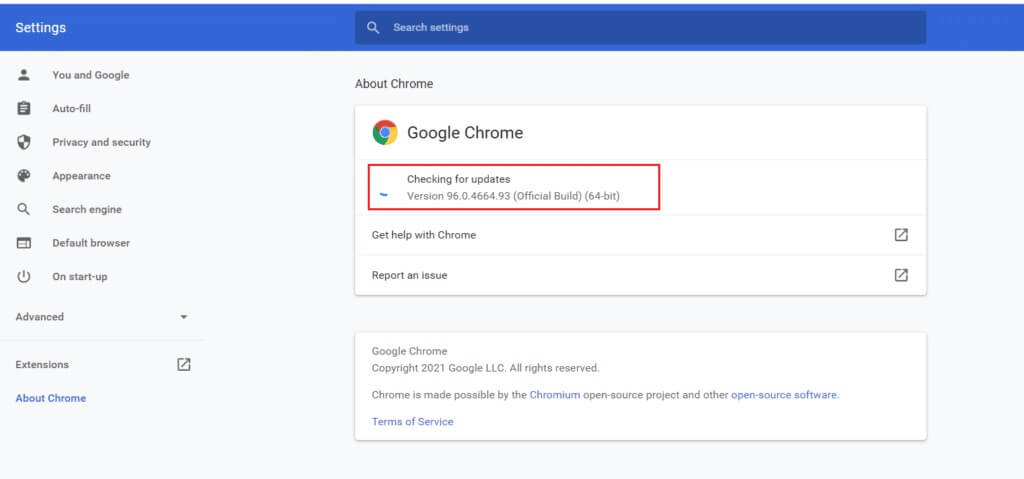
5a. If updates are available, click Update button.
5 b. If done Chrome update Indeed, it will be displayed. Google Chrome updated message.
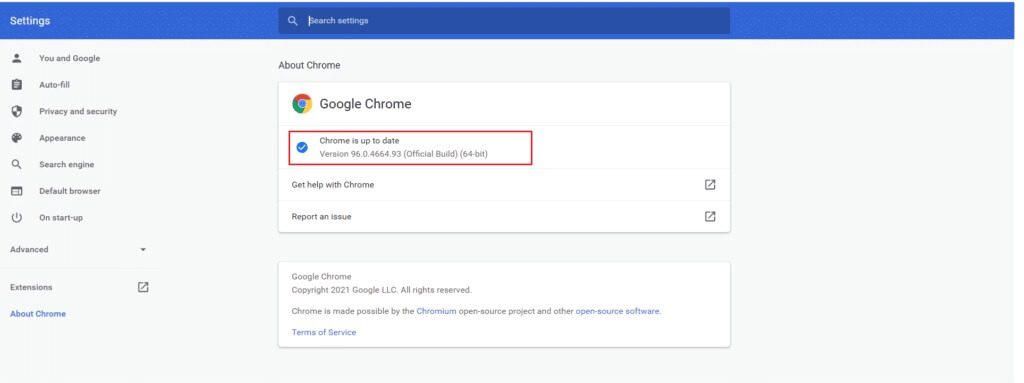
6. Finally, Restart your browser With the latest version and check if you have fixed the Forbidden 403 error.
Method 8: Scan for malware
If your computer contains incompatible programs and files that interfere with a particular web page, you may encounter the 403 Forbidden error. You can remove them by following these steps.
1. Turn on Google Chrome and click Three dots icon > Settings As shown.
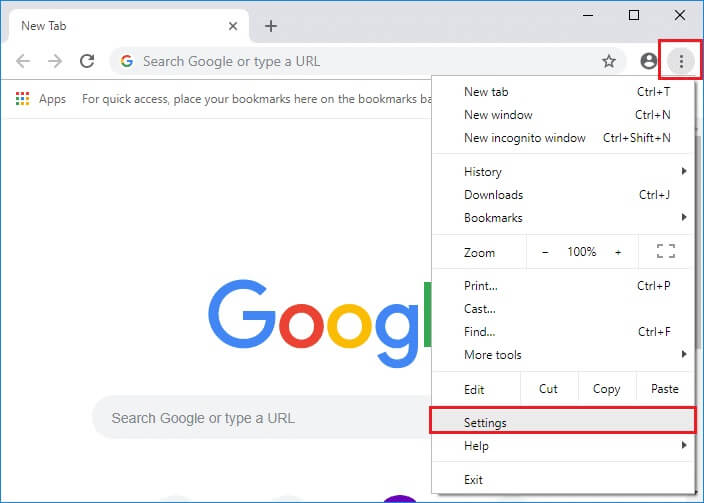
2. Here, click Advanced Setup In the right pane, select the option Reset & Clean.
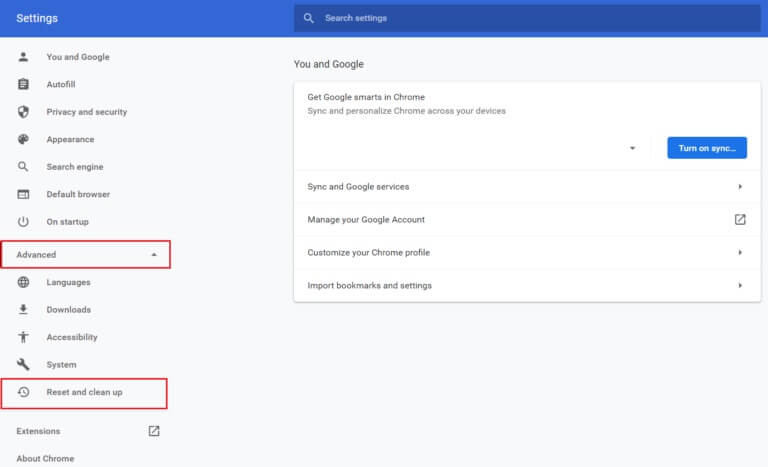
3. Now, select the option computer cleaning As shown below.
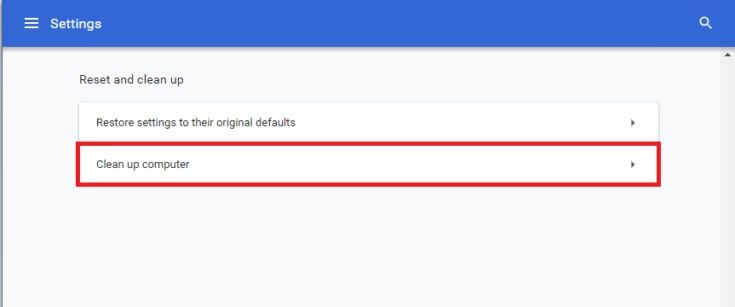
4. Here, click on the button "research" To enable Chrome to find malware on your computer.
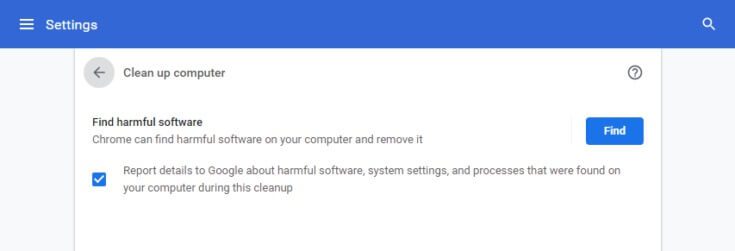
5. Wait for the process to complete and remove the malware detected by Google Chrome.
Method 9: Modify LAN Settings
Many network connectivity issues can cause the Forbidden 404 error in Google, and you can fix them by resetting your local network settings as shown below.
1. Open Control Panel By writing it in Windows search bar.
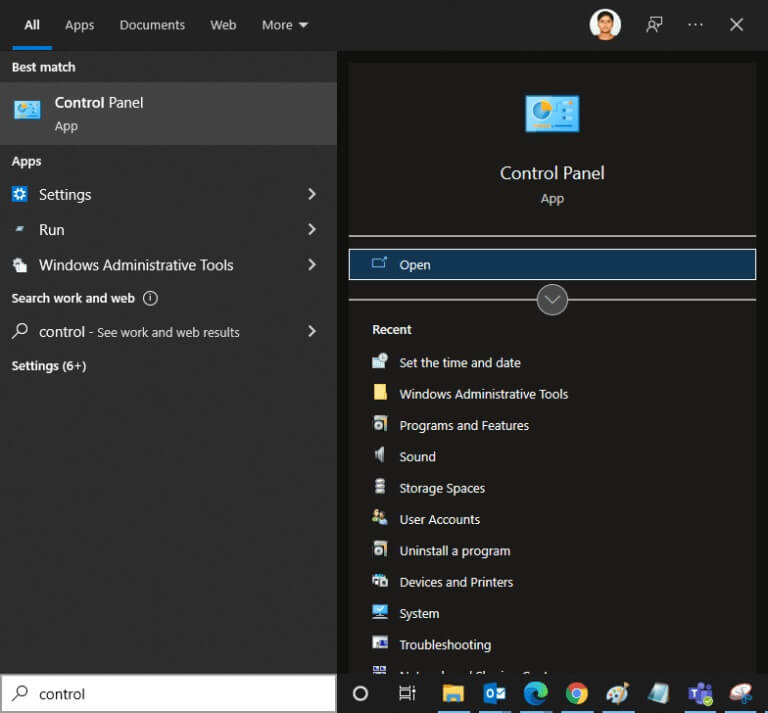
2. Now, set the option View by category and select Network and Internet Connection.
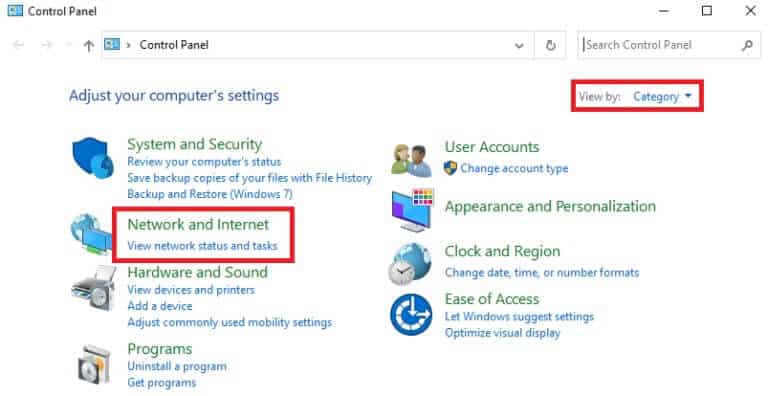
3. Click Internet Options.
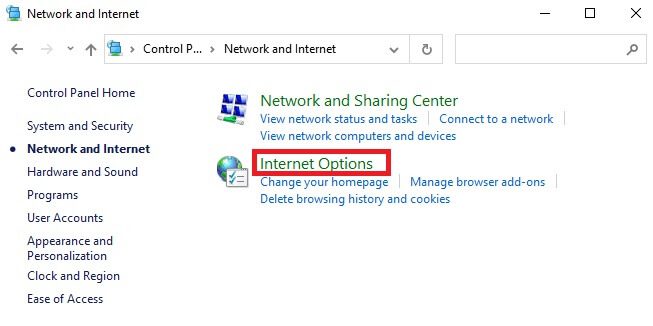
4. In a window Internet Properties , Go to Connections tab and select LAN settings.
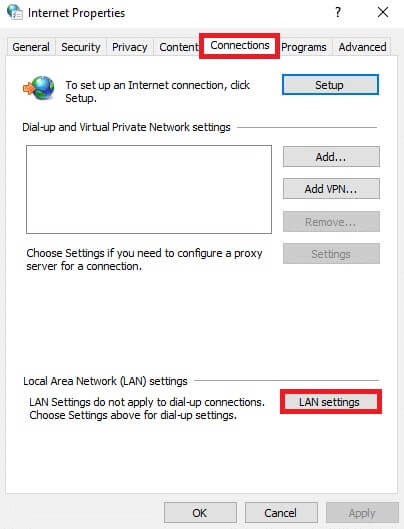
5. Check the box. Automatically detect settings Make sure not to select Use a proxy server For the LAN box (unless you need it).
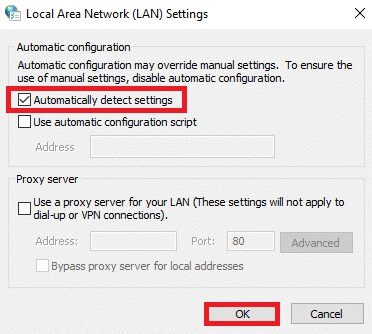
6. Finally, tap "OK" Save the changes and check if you are able to fix the 403 Forbidden error on Google Chrome.
Method 10: Disable VPN and Proxy
If your network connection is preventing you from accessing Google clients, you can try using a different connection or disabling your VPN/proxy. Then, follow the same steps to fix the 403 Forbidden error in Google Chrome.
1. Get out of Google Chrome Make sure to Close all Chrome-related applications of Task Management.
2. Press Windows button And type Proxy.
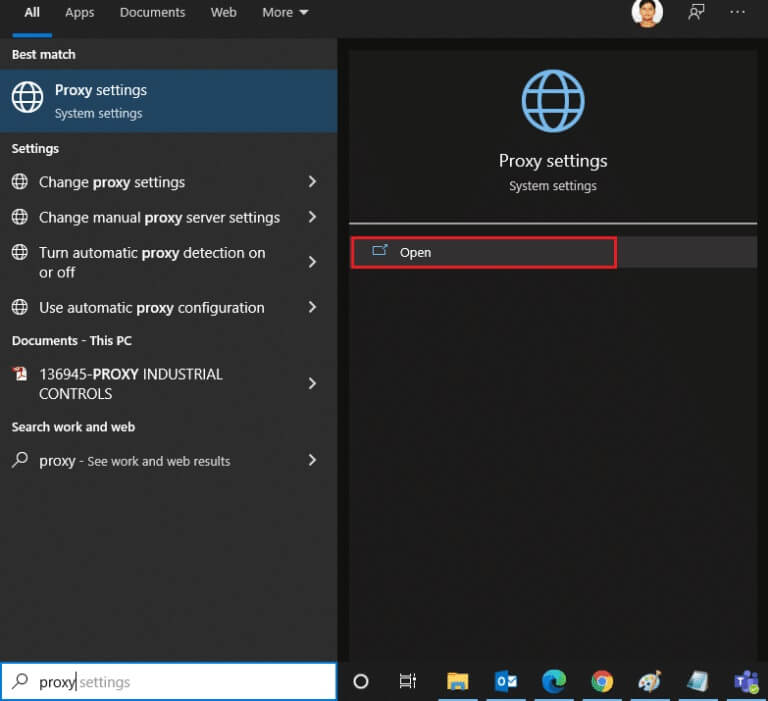
3. Open proxy settings from the search results.
4. Here, turn off the following settings.
- Automatically detect settings
- Use the setup script
- Use a proxy server
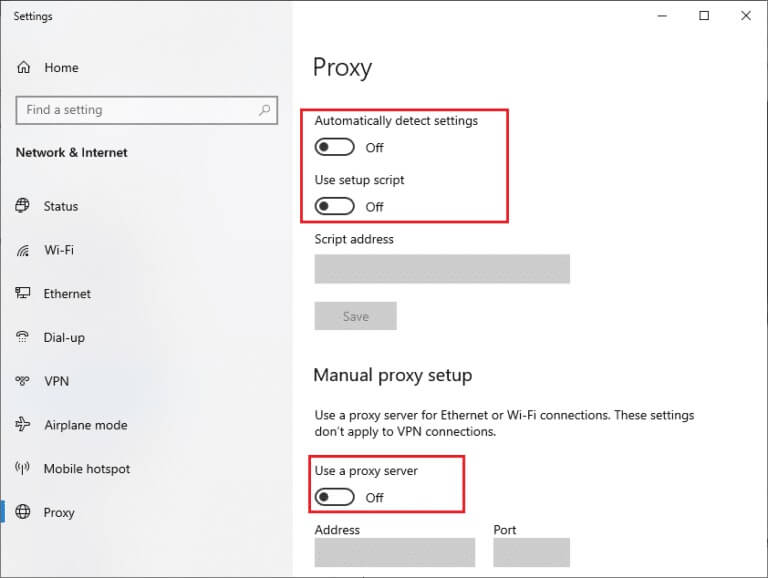
5. Now, run Google Chrome Again try visiting the web pages.
6. If not, use a VPN client and see if your issue is resolved. If not, try connecting your computer to another network such as Wi-Fi or a mobile hotspot.
Method 11: Use Google DNS address
Many users reported that it will be Fix Forbidden 403 Error By changing the DNS address provided by your ISP. You can use Google DNS address To fix the 403 Forbidden error on Google Chrome, here are some instructions to change your computer's DNS address.
1. Launch the dialog box. "employment" by pressing Windows + R keys together.
2. Now, type ncpa.cpl And press Enter key.
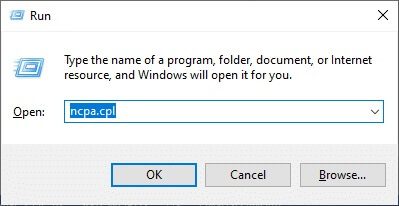
3. Right click on Active network adapter (such as Wi-Fi) and select Properties.
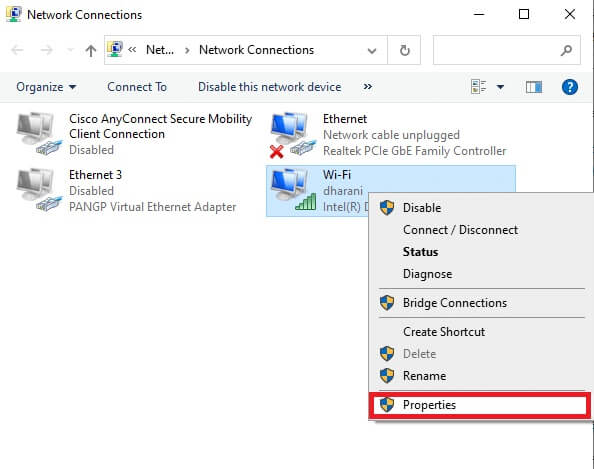
4. Now, a window will appear. Wi-Fi features. Click Internet Protocol Version 4 (TCP/IPv4) And click Properties.
Note: You can also double-click Internet Protocol Version 4 (TCP/IPv4) to open the Properties window.
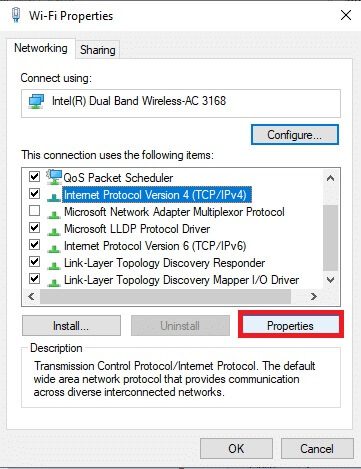
5. Select the Use the following DNS server addresses icon. Then, enter the values listed below in the Preferred DNS server and Alternate DNS server fields.
8.8.8.8
8.8.4.4
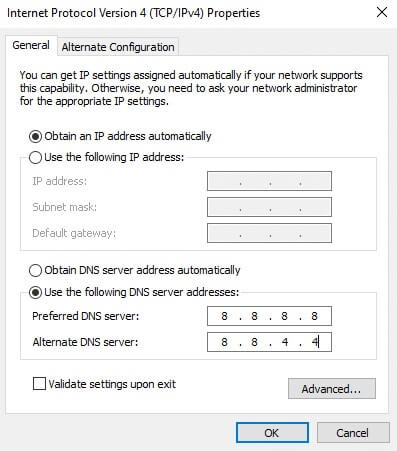
6. Select Validate settings upon exit and click OK.
7. Close the window, this method will fix the 403 Forbidden error.
Method 12: Whitelist URL in Antivirus and Firewall
If your computer is free of threats after a malware scan and your operating system is up to date, but you're still experiencing the Forbidden error in Chrome, there's a chance your Premium Security suite is blocking you from accessing a specific content URL. Here are some tips for whitelisting URLs in your antivirus software.
Option 1: URL Whitelist
Note: Here, Avast Antivirus is used as an example. Follow the steps according to your antivirus software.
1. Go to Search menu , And type Avast and click menu option in the upper right corner.

2. Click settings.
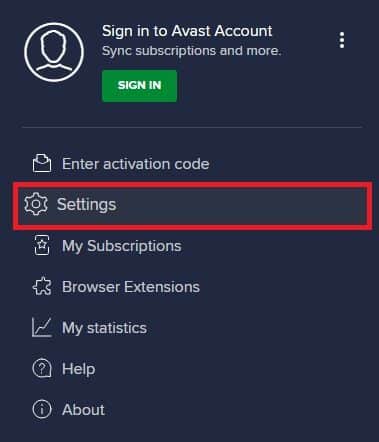
3. in General tab , switch to tab "Exceptions" And click Add an advanced exception Within the field "Exceptions".
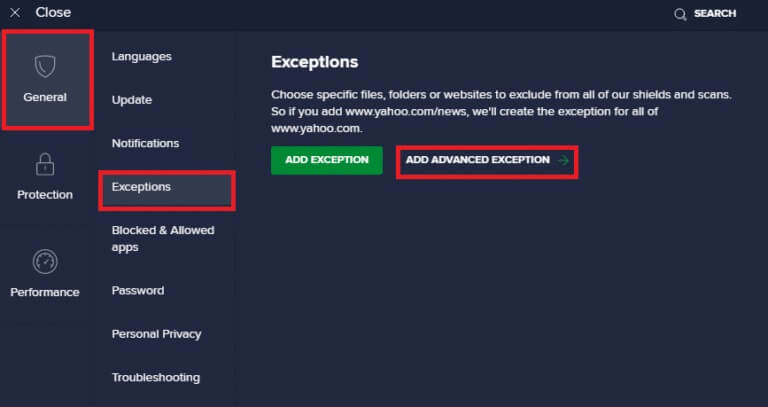
4. In the new window, click Location/Domain
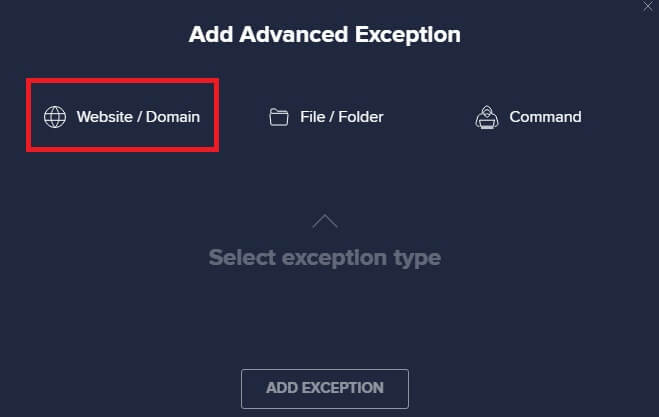
5. Now, type URL In write URL path. Next, click on the option add an exception.
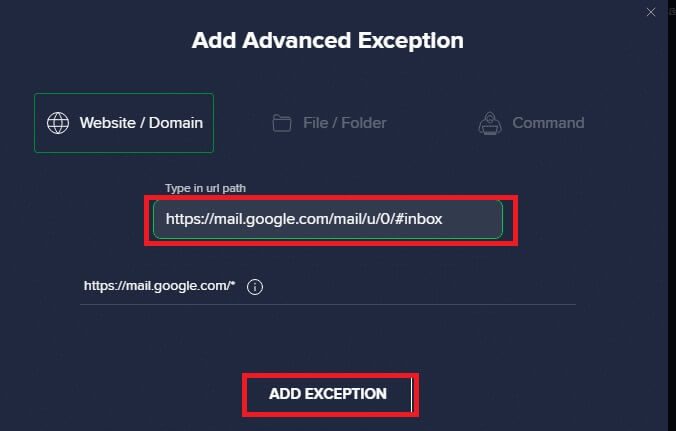
6. If you want to remove URL of Avast Whitelist , go to Settings > General > Exceptions and click trash icon.
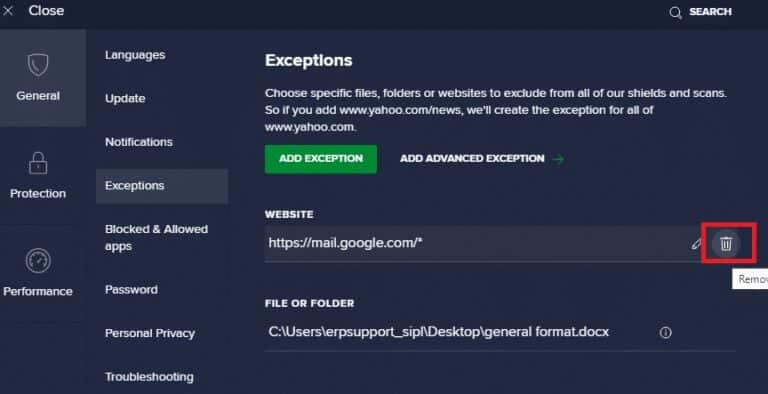
Option 2: Whitelist URL in Windows Defender Firewall
1. Press Windows key And type Windows Defender Firewall.
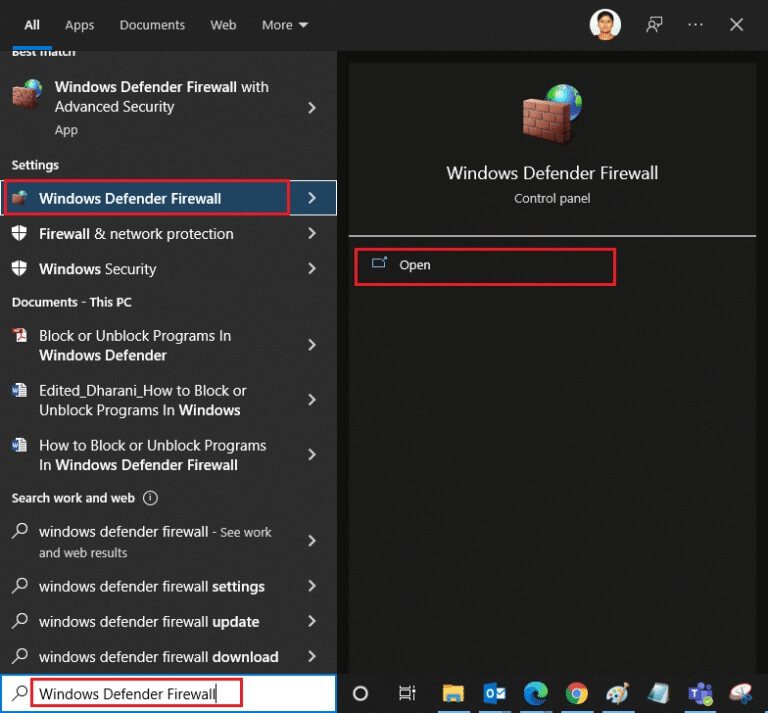
2. In the pop-up window, click Allow an app or feature through Windows Defender Firewall.
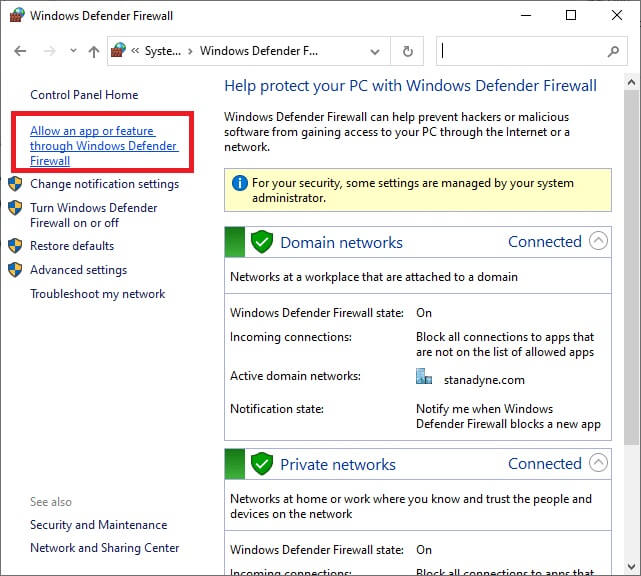
3. Click Change settingsFinally, check that Chrome allows traffic through your firewall.
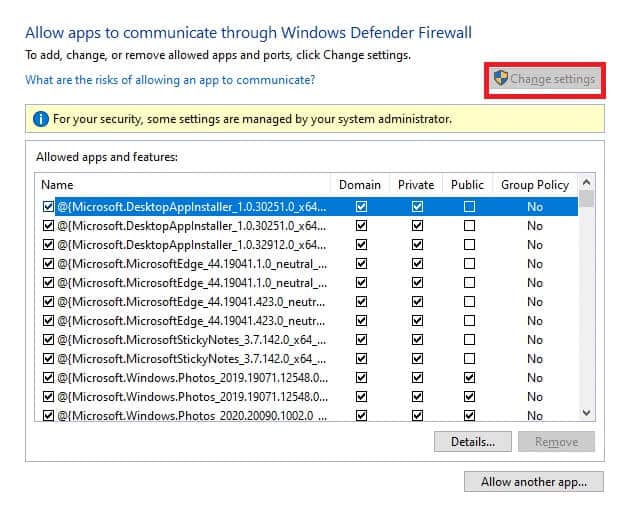
4. You can use Allow another app… To browse your program if the desired application or program is not in the list.
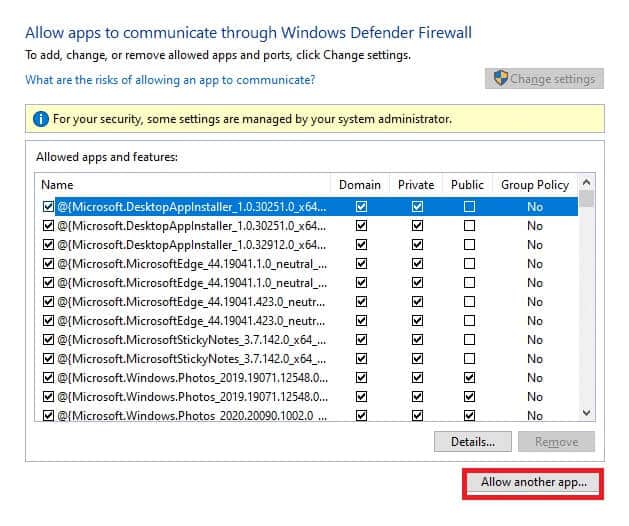
5. Finally, tap "OK" to save the changes.
Method 13: Contact your Internet Service Provider
If that doesn't work, try Reset Chrome Or reinstall it if necessary and check if you encounter the error again. However, if you don't get any fix for the 403 Forbidden Error in Google Chrome, it's best to contact your Internet Service Provider (ISP) or website owners for some assistance.
We hope this guide was helpful and you learned how to fix the 403 error in Google Chrome. Let us know which method works best for you. Also, if you have any questions or suggestions regarding this article, feel free to leave them in the comments section.



